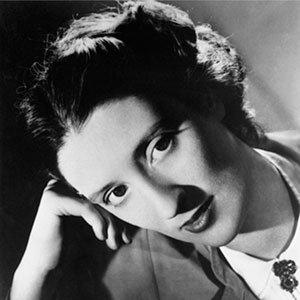“ALONE one is never lonely: the spirit adventures, waking…” – May Sarton
MAY Sarton’s wonderful poem on being alone, known mostly as “Canticle 6”, is a beautiful piece that highlights loneliness – that ever pervasive demon that walks hand in hand with misery and depression, affecting all writers and creative people at some point in their lives. But the poem raises the question, is loneliness really a bad thing? Is loneliness really a harbinger of pain or sorrow or, as the opening lines of Sarton’s poem implies, a sort of awakening that may lead to an experience in one’s life that may engender a kind of awareness that can lead to the creation of art?

Image via: Biography.com
The answer to these questions, in my opinion, will differ from individual to individual, as no artist is the same as any other. Any artist who is, is probably not a very good artist. I really mean to say that artists, as opposed to many other occupations, rely heavily on individuality, not only when it comes to their work but also the environment in which they work and what inspires them. As an example, I once met a young man, an artist who drew the most beautiful images using only pencil and paper, who says that, unlike others, including myself, he can only indulge in his art when he is happy. He cheekily went on to add that since he met me he had not drawn anything.
Joke aside, an artist’s reaction to loneliness would be similar. Isn’t literary history filled with a number of recluses (J.D. Salinger, Emily Dickinson, etc.) whose works are still read and studied today? Similarly, isn’t history filled with a number of authors who relished the company of others (F. Scott Fitzgerald and his wife, Zelda, for example)?
As one of the writers who is often forced to convert loneliness into time and matter that can be used as fuel for creative writing, I can say that enveloping oneself in the blank canvas that is loneliness can be beneficial in the way that it allows you, the writer, to mark that canvas with your words.Everything else in the world is blotted out from view and my most creative periods, so far, were from 2011 – 2013 and 2015 – 2016, spaces of time when I was studying and, therefore, very detached from family, friends, meaningful relationships or anything else that would remove loneliness from my life.
I was able to focus on my writing because there was nothing else to do, no one to go home to, no one to hang out with, no distractions. The writing, therefore, may have been an escape mechanism of sorts, a way in which I could escape the loneliness. It was productive, but, perhaps, it was certainly not healthy. These days I try to compromise by reconciling the two halves of myself.
I can only imagine what it must be like for the writer who does not need to shut him/herself away. The kind of writers who finds parties to be extremely inspiring because there are so many different personalities to be used in the writing. The kind of writer who can keep up small talk for extended periods of time. The kind of writer who can maintain strong and stable family connections while writing his/her book.
I imagine it must be a process whereby the world is synthesised into the writing process rather than shutting out to the world and giving your writing all of the attention. I imagine that these writers must be extremely good at time management. I imagine that they enjoy the rush of a hectic schedule, of never-stopping, of being outgoing and confident. I imagine it to be the exact opposite of my process. There is also a group of writers within this group – a subset who despite managing to engage and multitask still suffer from a loneliness deep within. Perhaps, in one way or another, it catches up with us in some way eventually.
The truth is that loneliness has long been a phenomenon that has affected writers and raised important questions. Amy Tan once said, “Our uniqueness makes us special, makes perception valuable – but it can also make us lonely.” Maya Angelou said that for her, music was a refuge that she could use against loneliness: “I could crawl into the space between the notes and curl my back to loneliness.”
Then there’s Kurt Vonnegut who may have come the closest to highlighting the need for the darkness that is loneliness that affects our world when he said that “the most daring thing is to create stable communities in which the terrible disease of loneliness can be cured.” I suppose there is a kind of morbid joy for a writer to read these quotes and know that he/she is not the only one in the world to have experienced the pain of, and be inspired by, loneliness.


.jpg)










